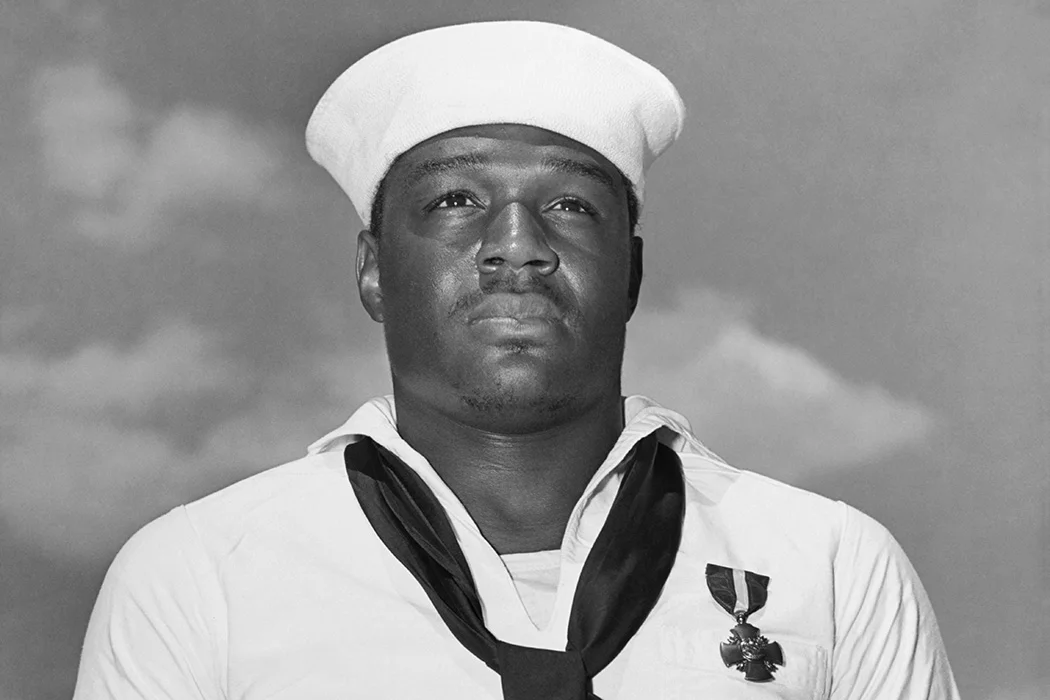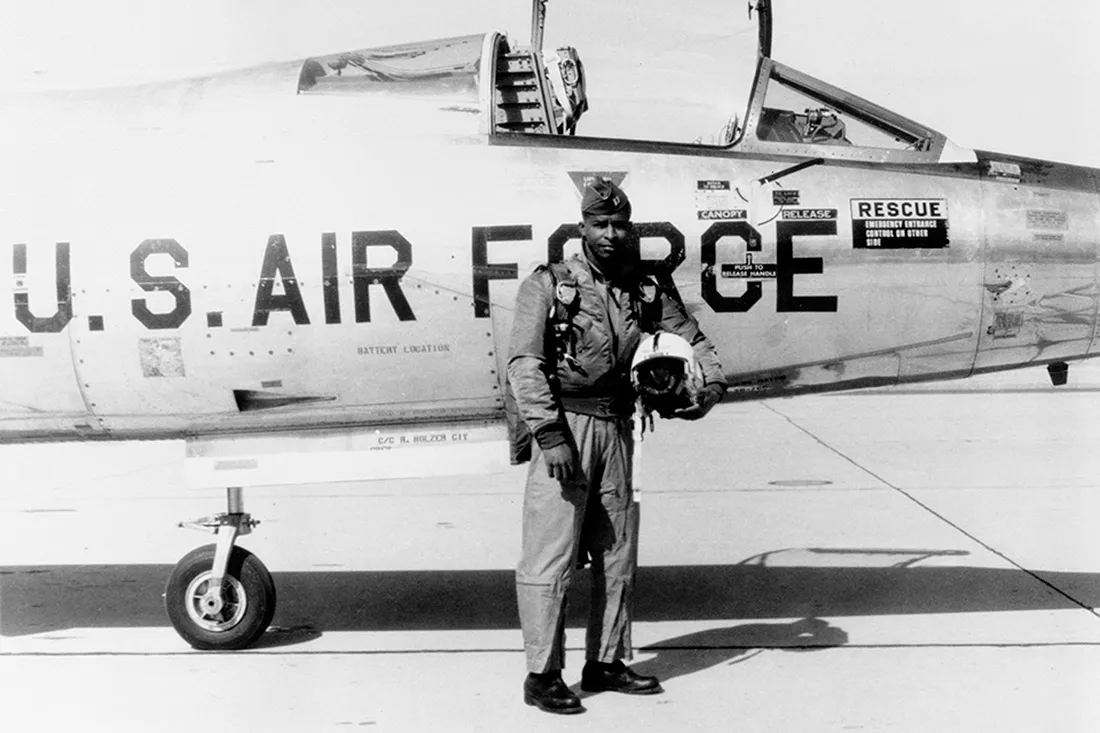Doris “Dorie” Miller, an African American sailor, became an emblem of heroism during World War II, defying racial barriers and inspiring generations with his courage and determination. Born on October 12, 1919, in Waco, Texas, Miller’s journey from a humble background to a national hero is a testament to the indomitable spirit that can emerge even in the darkest times.
Early Life:
Dorie Miller grew up in a time when racial segregation was deeply entrenched in American society. Despite facing systemic challenges, Miller showed an early aptitude for hard work and dedication. His family had a tradition of military service, and in 1939, at the age of 20, Dorie decided to join the U.S. Navy.
Navy Career:
Miller’s first assignment was as a mess attendant on the USS West Virginia, a battleship stationed in Pearl Harbor, Hawaii. The military was heavily segregated at the time, and African American sailors were often limited to non-combat roles. Despite these restrictions, Miller’s dedication and work ethic stood out.
Heroic Actions at Pearl Harbor:
On the morning of December 7, 1941, the Japanese launched a surprise attack on Pearl Harbor, marking the United States’ entry into World War II. The USS West Virginia was among the ships heavily damaged during the assault. Amid the chaos, Miller exhibited exceptional courage.
Assigned to carry injured sailors to safety, Miller realized the dire need for defense against the attacking aircraft. Although he had not received formal training as a gunner, he took control of an anti-aircraft machine gun and fired at the enemy planes. His actions demonstrated extraordinary bravery and contributed significantly to the defense of his ship.
Recognition and Legacy:
Miller’s heroism did not go unnoticed. In 1942, he became the first African American to be awarded the Navy Cross, the highest naval award for valor at the time. Despite this recognition, the struggle for racial equality within the military persisted.
Miller continued to serve in the Navy and was later assigned to the USS Liscome Bay. Unfortunately, the ship was torpedoed by a Japanese submarine and sank in the Pacific in 1943. Dorie Miller lost his life at the young age of 24.
Posthumous Honors:
Dorie Miller’s legacy endured long after his death. The Navy continued to honor his memory by naming a Knox-class frigate, USS Miller (FF-1091), after him in 1973. In 2020, the U.S. Navy announced plans to name an aircraft carrier, CVN-81, in his honor. This decision marked a significant step in recognizing the contributions of African American service members and breaking down racial barriers within the military.
Conclusion:
Doris “Dorie” Miller’s story is one of resilience, bravery, and the triumph of the human spirit in the face of adversity. His actions at Pearl Harbor not only saved lives but also challenged the prevailing racial norms of his time. Miller’s legacy serves as a reminder that heroism knows no color or background and that individuals like him paved the way for a more inclusive and equitable future in the U.S. military.







